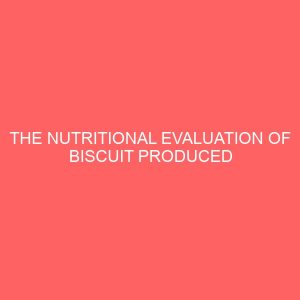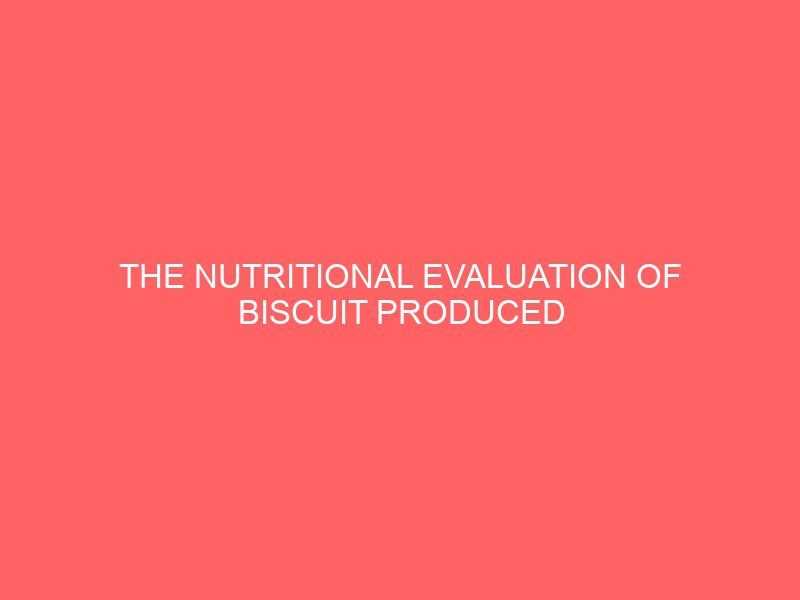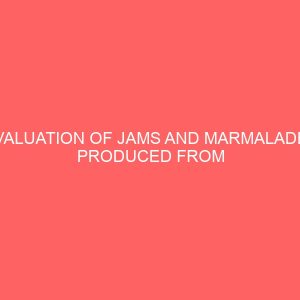Description
Abstract
This research work is on The nutritional evaluation of biscuit produced from potato and plantain flours. This study was aimed at producing and ascertaining the nutritional valuation of biscuits produced from plantain flour and potato flour. Unripe plantain and mature tubers of potato were bought from Naze market in Owerri, Imo state. They were washed, peeled, sliced and dried so as to produce the required flour. The produced flour was used to produce the varieties of biscuits. The produced biscuits were analyzed for their sensory, nutritional and microbial quality after production. Biscuit produced with potato flour had the highest general acceptability. The nutritional content analyzed include moisture, ash, fat, fibre, protein and carbohydrate. Plantain-based biscuit had the highest fat, fibre, protein and carbohydrate content than potato-based biscuit. Moisture, fiber and carbohydrate were higher in Potato-based biscuit. There was no bacterial and fungal counts observed in all the biscuit samples after production. But after seven (7) days of production, the microbial load was analyzed and the total viable bacterial counts observed ranged from 3.0 x 105 to 9.0 x 106 cfu/g. After 14 days of production, the counts ranged from 7.0 x 106 to 1.14 x 10cfu/g. The bacterial isolates observed include Staphylococcus aureus, Corynebacterium species, and Micrococcus species. The PH of the biscuits range from 5.4 to 3.6 and the temperature ranged from 22 to 300C there was a decrease in the PH and an increase in temperature as the biscuit were stored. This shows that nutrient enriched biscuit products can be produced from plantain and potato which could assist in the reduction of sugar intake by diabetic patients.








Reviews
There are no reviews yet.